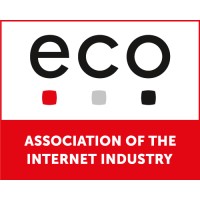Building a Diverse Workforce in Tech: A Vision for Change
Dr. Claus van der Velden, Commercial Managing Director at NetCologne, shares insights on local commitment, empowering women, and fostering innovation through inclusion.

© gorodenkoff | istockphoto.com
Jill Kommoss: Your company is deeply rooted in the local culture and shows a high level of commitment. What makes the region so special for you and how do you promote it?
Van der Velden: We see Cologne as the most beautiful city in the world. In any case, the city is very livable and cosmopolitan, with its people truly defining its character and that of the entire Rhineland.
In the Rhineland, carnival is a key symbol of the distinctive way of life and joie de vivre. That is why we are happy to support various associations in the cultivation of customs. Beyond that, we are also actively involved in other social areas such as education, sport, and culture.
This year, we also took part in Cologne’s Christopher Street Day, a demonstration supporting the rights of LGBTQ+ people in our society, with a large group of colleagues. I was particularly pleased that this initiative came from the heart of the organization and was both initiated and organized by employees from all areas of the company. We find it incredibly rewarding to see how self-motivated and committed our team is. These are precisely the values we strive to live and embody.
You are intensely involved in the digitalization of schools in the Cologne/Bonn area. Keyword “Education Services”: What does this concept entail and why is it so important?
Van der Velden: On behalf of the City of Cologne, we manage the IT infrastructure of Cologne’s schools and provide a 360-degree service package for digital learning. In addition to centralized identity management and extensive cloud solutions, we also take care of central device management, including the setup and maintenance of approximately one hundred thousand devices. We also provide the necessary infrastructure for the school buildings themselves. Around 8,000 WiFi access points have been installed in Cologne’s schools and are connected to our fiber optic network. This makes the city of Cologne a pioneer and we are proud to continue driving this issue forward.
After all, female specialists in particular remain underrepresented in STEM professions. I see changing this as a critical societal and educational policy challenge, as role models are often shaped early in life by parents and schools. Initiatives like this provide children with opportunities to engage with digital technologies and topics from a young age, awakening their interest in these areas. These efforts can also help to break down stereotypes and inspire more girls to pursue technical careers at an early stage.
How is the tech sector positioned in terms of female specialists and what developments can be observed?
Van der Velden: The figures speak for themselves – there is still much work to be done. At NetCologne, women make up 28 percent of our workforce, which puts us slightly above the industry average. While we have observed a positive progress in recent years, achieving a balanced gender distribution remains a challenge. Many companies in the tech industry have recognized that changes are necessary in order to achieve a more balanced distribution in the long term. I am therefore confident that we will see a fairer gender distribution at all hierarchical levels in the future. And we are actively contributing to this goal.
In 2024, you focused in particular on the dimension of equal opportunities. What measures are you taking to promote this and how are you encouraging more women to pursue careers in the tech sector?
Van der Velden: Components of our measures include, for example, our women’s network and our annual participation in the Girl’s & Boy’s Day. However, I believe it’s even more important to create the right framework conditions for women within the company. Flexible working hours and remote work opportunities are crucial in this regard. Another key aspect is the design of job advertisements. Our experience shows that women sometimes assess themselves more critically than men, and the wording of a job ad alone can therefore influence whether they apply for certain positions. In addition, we make sure that all positions we advertise are also available on a part-time basis – including management positions. Currently, it is mainly women who take advantage of this offer, which sheds some light on existing societal structures.
In order to increase the proportion of women in management positions, we need to create flexible working models and room for maneuver. It is crucial that the requirements and expectations of both sides – the company and the female candidates – are clearly communicated.
It is also important for us to regularly address the issue of equal opportunities within the company. From my point of view, it is essential for us as male managing directors to actively support this. In the tech industry, where many management positions are still held by men, it is important to sensitize them to the issue. Gender-sensitive communication and open communication with each other are key factors here.
We also endeavor to create transparency in our figures. Our monthly HR reporting provides a clear overview, answering questions such as: How many women work in which departments? How many apply? How many are hired? Are there any anomalies? This level of transparency helps to raise awareness of equal opportunities. However, the decisive factor is that this reporting not only exists on paper, but also serves as a basis for dialogue with managers. This is the only way we can bring about real change.
Keyword “internal women’s network”: What advantages does it offer and do you have any tips on how such a network can be set up and lived in companies?
Van der Velden: Our women’s network is self-organized and we as the management team merely provide the space and opportunity for it. The network was created on the initiative of female employees and is perceived with significant interest. Since we are two male managing directors, I don’t think it would have been appropriate to found the women’s network from our side. If I were to give any advice at all, it would be this: Dear male managers, don’t actively interfere, rather create the necessary freedom and opportunities so that such a network can be established and grow organically.
The benefits for the company are rather indirect, but nevertheless significant. A women’s network promotes the motivation and commitment of female employees, empowering them to become active shapers of a corporate culture with a broader diversity of perspectives. That is one of many pieces of the puzzle. My impression is that the female colleagues benefit greatly from it, but you would need to interview the women’s network yourself to find out.
NetCologne is part of the Cologne alliance “Mit Frauen in Führung” (With Women in Leadership). What is this alliance and how can women benefit from it?
Van der Velden: The alliance consists of 17 companies from different industries. We benefit from each other because we are not direct competitors and can therefore exchange ideas very openly. The main aim is to increase the proportion of female managers in the alliance companies and to strengthen them in their roles. One particularly noteworthy initiative is the cross-mentoring program, where women are specifically accompanied and supported by experienced managers from other companies. This approach allows them to gain new perspectives, expand their network, and further develop their personal skills.
You take part in the cross-mentoring program as a mentor. We would like to know more about it. What was your personal motivation to get involved?
Van der Velden: The program extends over a year and a half, during which a manager from one company acts as a mentor to an employee from another company, supporting them on their career path. The exchange is very open and flexible, without rigid guidelines. The frequency of the meetings and the topics discussed are tailored to the individual needs of the mentee. However, the organizers always provide inspiration for the individual work of the mentoring tandems.
I have been working with my mentee since February and we have been meeting regularly ever since. She has visited me several times at NetCologne and has been able to gain a direct insight into my day-to-day work. The program thrives on a continuous and, above all, trusting exchange, as well as honest mutual feedback.
My motivation to get involved as a mentor is based on my conviction that companies and entire industries can only benefit from greater diversity. Different perspectives enrich our corporate culture and promote innovation. But I also benefit personally from the exchange with my exciting tandem partner – I receive new ideas and gain fresh perspectives that also enhance my own management approach. These experiences make the program not only meaningful from a business perspective, but also deeply enriching for me personally.
The interview was conducted by Jill Kommoss.
As Commercial Managing Director, Dr. Claus van der Velden is responsible for controlling, accounting, human resources, procurement, and legal & regulation at NetCologne. The telecommunications company has set the goal of promoting diversity and, in particular, gender equality. Through various initiatives and frameworks, NetCologne aims to enhance the entry, development, and advancement opportunities for women in the historically male-dominated telecommunications industry.
Jill Kommoss is a Project Manager in the area of member support. She is also responsible for the New Work Competence Group, which focuses on the close intertwining of work and digital technology. She also oversees the Ladies in Tech initiative, which promotes women in the digital sector.
Please note: The opinions expressed in Industry Insights published by dotmagazine are the author’s or interview partner’s own and do not necessarily reflect the view of the publisher, eco – Association of the Internet Industry.







